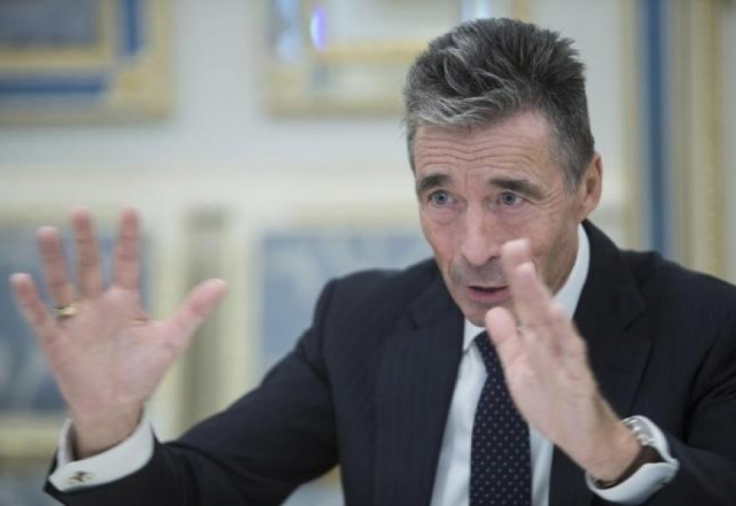Ukraine Reforms Could Bolster Case For Russia Sanctions, NATO’s Ex-Chief Says

Ukraine will find it easier to persuade European Union countries to renew sanctions on Russia this summer in the event it shows progress in pushing reforms and tackling corruption, the former chief of NATO told Reuters Saturday. Anders Fogh Rasmussen was appointed an adviser to Ukrainian President Petro Poroshenko Friday, having been NATO secretary general when Ukraine plunged into conflict with Russian-backed separatists after Moscow’s annexation of Crimea in 2014.
The EU will decide within weeks whether to renew sanctions on Russia, which requires the unanimous agreement of its 28 member states. The sanctions will probably be extended despite growing opposition within the bloc.
Rasmussen said continuing the sanctions was the only way to exert pressure on Russia to stop supporting separatists fighting the Ukrainian army in the Donbass region and getting a ceasefire agreement to stick.
“I know from talks with politicians in Western capitals that their willingness to continue sanctions is also linked to the Ukrainian willingness to actually carry out comprehensive reforms,” Rasmussen said by phone. “So my goal as adviser to the president would be to actually initiate a two-way street. Firstly of course in Western capitals I will argue that the Ukrainians have already carried out profound reforms.” Rasmussen added, “On the other hand, I will also bring messages back to the president from my interlocutors so that the Ukrainian authorities clearly understand what is the priority in Western capitals.”
The separatist conflict has killed more than 9,000 people and deadly violence flares weekly on the front line, with both sides accusing each other of ceasefire violations. Rasmussen said the situation in eastern Ukraine was “alarming.”
Pushing All the Time
Rasmussen takes on his new role at a time of growing disillusionment in Ukraine about the pace of change after the 2014 Maidan protests brought a pro-Western leadership to power.
Poroshenko’s popularity has fallen and several high-profile reformers have either been forced from office or quit in frustration. The economy minister resigned in February accusing a close associate of Poroshenko of corruption.
Rasmussen’s appointment has ruffled feathers in Moscow. Leonid Kalashnikov, a lawmaker on the foreign affairs committee of Russia’s lower house of parliament, called it a “hostile gesture,” according to Interfax news agency.
And Konstantin Kosachev, a senior member of Russia’s upper house of parliament, wrote on Facebook of Rasmussen’s appointment: “All this buffoonery serves one goal: to keep Ukraine in the center of attention of its Western partners at any cost. For if this attention weakens, and they suggest Ukraine engages in solving its own problems and no longer blames Russia or the ‘difficult legacy of the past,’ it will be like death for the Kiev regime.”
A former Danish prime minister, Rasmussen said Western countries were concerned about entrenched corruption in Ukraine, but stressed that Kiev had made substantial progress.
“I don’t think it’s a fair criticism to say that Ukraine is backsliding,” Rasmussen said. “The current Ukrainian administration under President Poroshenko has carried out more reforms of Ukrainian society than you have seen in the past 20 years. But of course it is essential for continued Western support that this reform process continues. And that’s why you have to push all the time.”
© Copyright Thomson Reuters 2024. All rights reserved.











